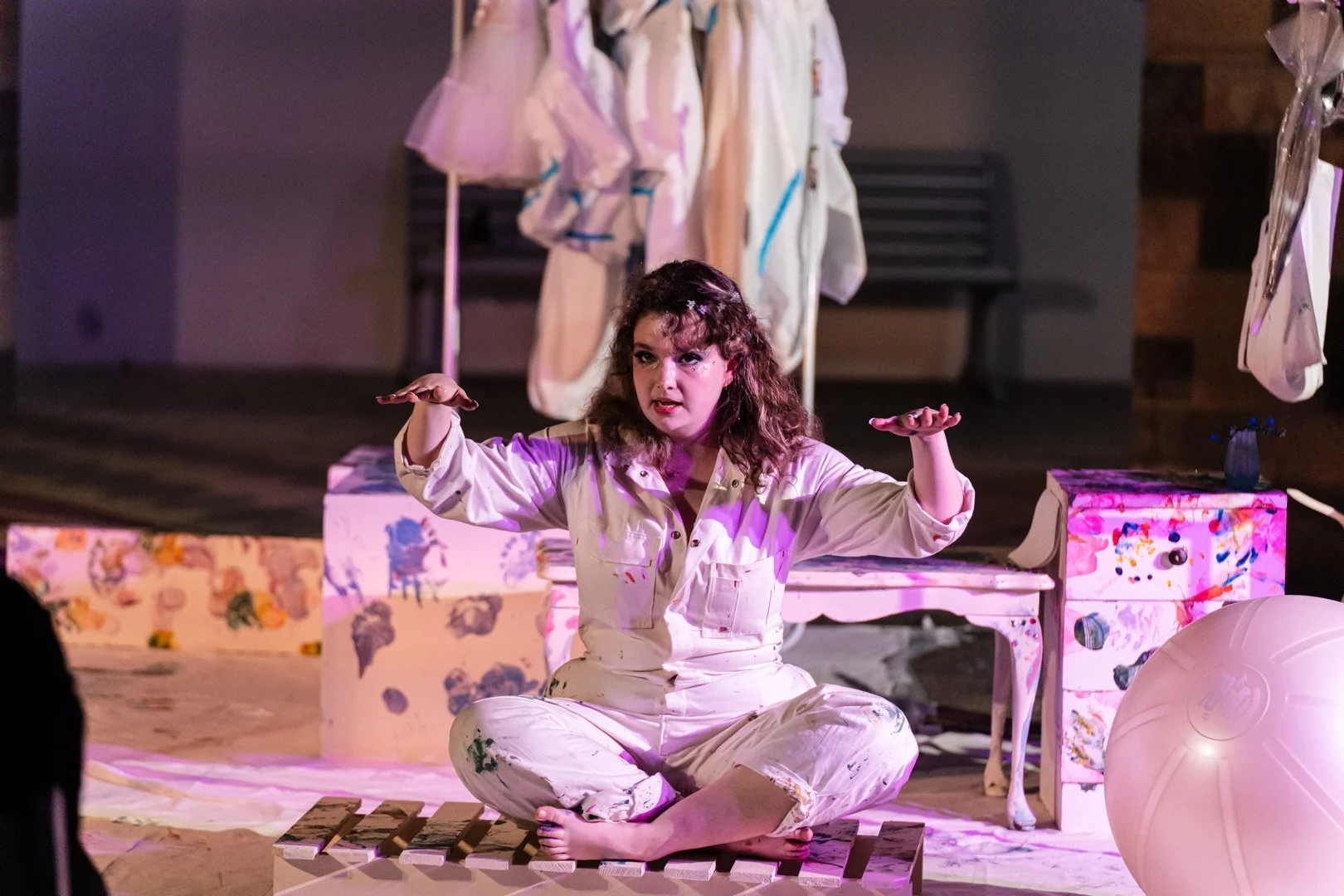Obstacle | Grace Longwill
Image credit including cover: Jade Ellis
Dyspraxia is a condition characterised by disordered movement and coordination or more colloquially the feeling that you do not know where your body ends and the world begins, or the inability to locate your body in space. However, communicating what this condition is like to live with (like explaining what coriander tastes like to people with the gene that makes it taste like soap) is no easy task. Thus, Grace Longwill saw fit to create the world of Obstacle.
Obstacle is a realm born from Longwill’s frustrated desire to create a series of task-based tests for her schoolteachers that might help them understand what the world is like for her. The realm Longwill has designed is one in which the rules are hers to make. What a body does, what theatre does, what doing a body and doing theatre looks like are all for her to decide. She has created a space that is accessible to her in every sense and while this may disrupt the viewers sense of “good” and “polished” theatre, she doesn’t apologise for it and we (or at least I) don’t have a single complaint about it.
Once the world is established, Longwill bobs and weaves through a series of personal stories and physical challenges. Across her journey, we come to understand how navigating family, school, performance training, and more is made more difficult when working without an internal navigation system, and I mean this in the literal sense. The work is poignant and intimate but retains the zaniness of its maker/subject. This journey leads to the thematic heart of Longwill’s work, the assertion that there is no such thing as a “neutral” body. Every body has a history, a context, and a socio-political status and those things cannot be shed, or only can up until a point. She furthers this claim by transmuting the body into an evocative metaphor for one’s positionality or context; Longwill cannot leave her body behind and reminds us that we cannot either. She asks that we be kind to her, to ourselves, and to each other because we may not always know or understand how our contexts contribute to our needs.
Image credit: Jade Ellis.
My only suggestion would be to further incorporate the obstacle course into the work. As the work stands, participation in the obstacle course is an optional after-show experience and I’d love to see something akin to Travis Alabanza’s Burgerz where the performance of obstacle course by an audience member is more central to the emotional power of the work. All-in-all this work in progress has immense potential and I look forward to seeing how it develops.

